Fudd Friday: The Rifle Of The Arroyo
It was a hard day to be in the hills— wind in the piñon, sky the color of old tin. The November light, flat, pushed through gray and went nowhere.
This guest post is written by Aaron Martin.
That morning, I had come up from Santa Fe before dawn on Highway 112. The truck and trailer were parked where the two-track turned to ruts. The silhouette of Dead Man's Peak was just visible in the gray sky to the east. My horse, Rowdy, stood shifting under the pack saddle, patiently tied as if he'd been made for the task. I glassed the steep canyon country. A buck showed below a rim in the junipers—a heavy five by four with a distinctively split G2 on its right. I glassed him for a long minute, judging the score. The shot broke clean. I missed, a ranging error sent the shot clean over his back. The muley vanished into country where men don't often travel.
That's how I lost the truck.
One canyon turns into another in this country; arroyos and rims flow until every ridge looks like the last. I thought I'd dropped back toward the two-track, but I had skirted the wrong arroyo. The sky dimmed. I realized my compass sat safely in an old satchel left back in town. We rode toward what I figured was West, but it was impossible to tell in the dull light and biting wind. Rowdy picked the line, hooves sliding in quartz and claystone as I tried to keep a map in my head.
By midafternoon, we found an old road—twin ruts half buried in bunchgrass, no more than a cattle track. It felt like a thing you could follow, so I set Rowdy's head toward it and rode on. After a few miles, the ruts led to an old homestead. A place that sagged under the weight of a century of winters just like this one promised to be. The house was a territorial abode, one story, the tin roof more patched than whole; a broken-down windmill stood silent in the adjacent pasture. It looked long empty, the porch bent to one side.
I called out, feeling foolish. "Hello?" Only the wind answered.
Then I saw him—an old man sitting in a chair just beyond the threshold where a door would have stood. Still as a shadow, hat pulled low.
"Didn't mean to trespass, Sir," I said. "Got turned around."
He didn't move for a moment, then turned his head and spoke, voice dry as dust, "You wouldn't be the first, son. Mule deer?"
"Mule deer," I responded.
He nodded in approval. "They bed near the rim this time of day. There's a wide five by four that runs with three does. Keep east of the next arroyo, and you might see him."
I peered into the doorway—no comforts to suggest a home. "You live here?"
"Used to," he said.
Rowdy stamped. The horse's ears twitched; he worried at the split reins. The man nodded toward him. "Good horse. Had one like him once."
"You're welcome to water," the man said. "Tank 'round back. Road cuts through the canyon north. You'll hit the two-track to the highway by dark if the storm doesn't come first."
I was grateful, and my eye caught the rifle leaning against the porch rail. It was a Marlin 1895, bluing worn to bare metal at the edges, the walnut stock dark as blood. Engraved deep and delicate were the initials on the receiver—J.F.
"Beautiful rifle," I said. ".45-70?"
The man turned slightly toward it. "She's taken her share," he said—pointing to a five-by-four European mount on the wall beside him. "Be good to hear her speak again. Take her, if you like. Your buck is due east."
I protested slightly. He smiled. "You'd be doing an old man a favor."
The rifle fit my hands as if it were waiting for me as I worked the lever. Despite its age, the lever action was well maintained. I advanced a cartridge into the chamber. Rowdy gave a sharp snort as we set off.
The afternoon light continued to sink as I glassed over every fold and slope. On a low bench, I spotted an antler—the buck, heavy-bodied, ears picking the wind. It was the same five by four I had seen this morning and eerily similar to the European mount I had just seen at the homestead.
"It couldn't be," I thought, pushing the idea out of my head. I stalked inside eighty yards, slipped the rifle to my shoulder, steadied on a rock, and the shot broke clean. The buck collapsed where it stood.
When I turned back toward the waiting ridge, Rowdy was standing stock-still, ears pricked, nostrils wide. The horse wasn't afraid of much—cougars, maybe, or the sudden scent of a dead thing—but the way he stood now, rigid and listening, unsettled me. We climbed back toward the house in the dimming light. I led as we walked with the buck quartered and balanced in the panniers. The sun was gone, and the hills had taken on the strange flatness between dusk and dark.
When I reached the porch again, the chair was empty and slightly crooked, one leg sunk deeper in the planks, and the porch boards were thick with dust. My boot prints were gone. The old man was gone.
I stood there for a long moment, hat in hand, rowdy grazing behind me. I called out—once, twice—but only the echo came back from the canyon.
"Thank you," I said anyway, and went to lean the rifle against the railing where it belonged.
That's when I saw the note.
Nice shot. She's yours now. You'll find the road easy from here, but get a move on. – J.F.
The faint trail to the north led us to the two-track where my truck and trailer were parked, just as the man had said. Not a moment too soon, either; the snow had begun to fall, and the wind howled.
The next morning, in town, I stopped by gunsmith Walt Bracken's shop. Walt had forgotten more about rifles than I'd ever learn. I told him what I'd seen and laid the rifle on his bench. Working it over in his hands, Walt's face went pale. "A Marlin' 95—J.F.," he repeated quietly. That'd be John French's gun. Rancher out near Arroyo Blanco. My father worked his brand when I was a boy. We found him frozen near Dead Man's Peak in '51. He was out hunting when a storm set in. Blizzard took him and the horse both." Walt looked past me toward the window and whispered, "He was buried with this rifle".
About the Author
Aaron Martin is a former U.S. Marine Corps Scout-Sniper and Reconnaissance Marine with multiple combat tours. Following his military career, he became a precision rifle instructor, training hunters and military personnel at FTW Ranch and Modern Day Sniper. Currently, Aaron works as an engineer and design consultant in the firearms industry while competing in the NRL Hunter Series as a member of Team Ruger. When he's not instructing, he resides in Southern Indiana with his family, where he enjoys hunting, fishing, and working on the farm alongside his wife and daughter. Aaron is also the founder of Targeting Solutions, his latest venture. You can connect with him on Instagram: @TENSECONDPRECISION.
This article was written by a Guest Author. The views contained in this article reflect that of the author and not necessarily that of The Firearm Blog or TFBTV.
More by Guest Post
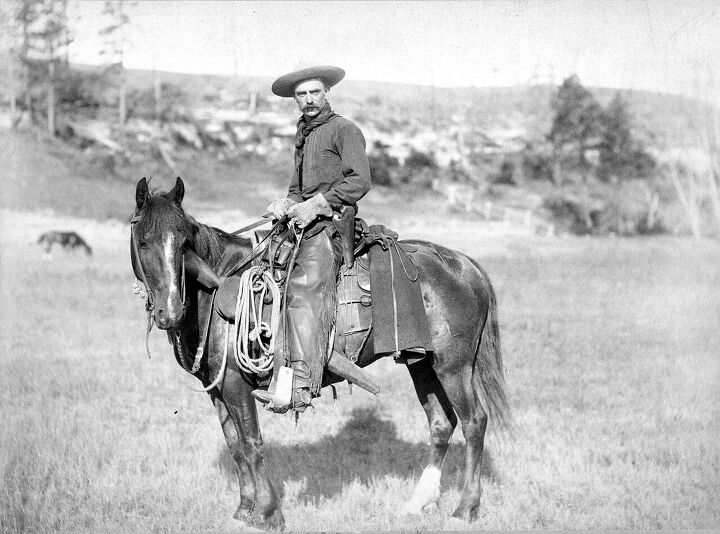





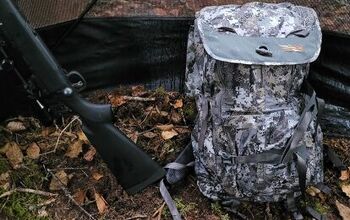
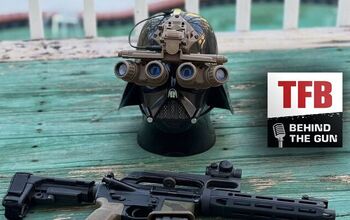






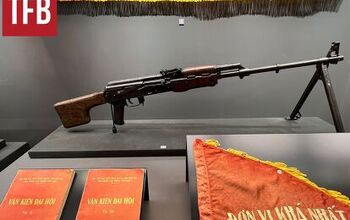


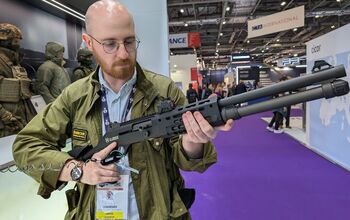


Comments
Join the conversation
Great story, one would like to believe.
I'm a fanatic of dime novels and knowing most are fiction I enjoy reading about time past.